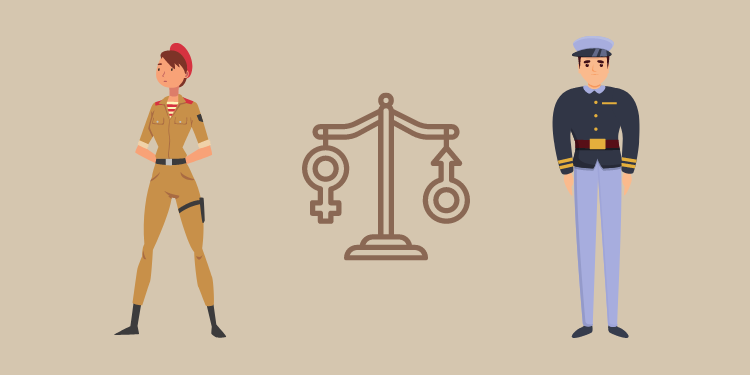Gender Equality and Diversity in the Armed Forces
The Armed Forces has been considered for a long time as an only male profession, despite that women are joining more and more the military, stereotypes still prevail. Consequently, substantial change in the Armed Forces cannot be achieved. According to an opinion provided by the FEMM Committee of the European Parliament to the annual CSDP report only 5% of women participate in CSDP military missions, while there are no female commanders of CSDP military missions.
To continue, the Strategic Compass calls for gender equality in the Armed Forces, while gender advisors will also be deployed at the missions and operations. At the annual progress report of the Compass it was also highlighted that work on this domain will continue.
EUROMIL conducted in this regard, an internal survey concerning women in the Armed Forces, to gather intel on how the situation is for women in European militaries. According to the input from our members, women face cases of bullying, sexual assault and/or harassment, equipment and uniforms not suitable for female soldiers, while female military personnel do not reach as often high-ranking positions, as their male counterparts.
It should also not be forgotten that LGTBQI+ people continue to face discrimination, harassment and violence based on their sexual orientation or gender identity, especially considering the Armed Forces. Hence, LGBTQI+ integration in Armed Forces is a matter of justice, equality and human rights. If people are willing to serve their country, then they should be recognized and respected for who they are.
People joining the Armed Forces should also receive specialized education on the issues of gender equality and diversity in militaries. For instance, by having more women joining the military, the Armed Forces will become more robust, will gain more high skilled and educated personnel– especially in conflict resolution and peace building, while changing the military culture that remains a patriarchal one.
It is essential, that the European Institutions focus on inclusion, diversity and equality in the European Armed Forces, cooperation is needed between the European Parliament, the European Commission, the European Council, as well as with the national parliaments and military associations to jointly work for a more equal and inclusive working place environment for military personnel. It should also not be forgotten that a reflection of the society in the Armed Forces could improve the image of the military, while also ameliorate the rights, opportunities and working conditions of military personnel. Thus, providing equal opportunities to military personnel – regardless of gender – to reach higher ranking positions, adequate equipment and uniforms to female personnel, and drastically tackling issues of harassment and sexual assault in the military should become a priority.
EUROMIL remains committed into a gender equal and inclusive military culture. More work is needed and cooperation between different actors to achieve substantial results and significantly change the deep-rooted stereotypes and mentality around women in the Armed Forces. In order for Europe to build stronger, more durable, equal and inclusive societies, this should be reflected in all its aspects, including in the Armed Forces.
This article is part of EUROMIL’s European Elections 2024 project.

